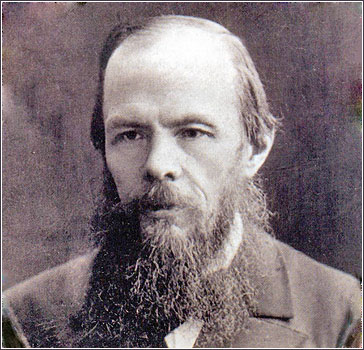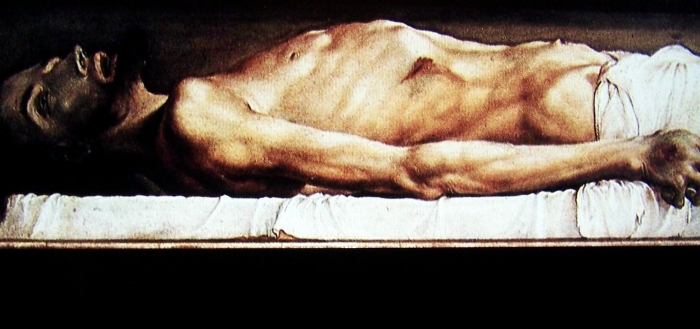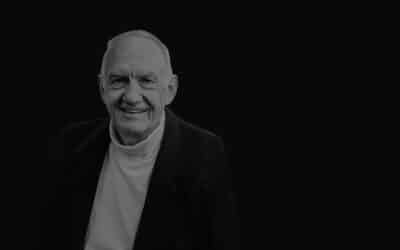Guest Post: Pastor Ray Jones
 In R. Kent Hughes’ book, Disciplines of a Godly Man, he challenges men to discipline their minds. Specifically, he encourages godly men to read the great classics of literature. As a result, I have taken his challenge to heart. Over the last decade, I have read a couple of great works of literature each year.
In R. Kent Hughes’ book, Disciplines of a Godly Man, he challenges men to discipline their minds. Specifically, he encourages godly men to read the great classics of literature. As a result, I have taken his challenge to heart. Over the last decade, I have read a couple of great works of literature each year.
Surprisingly, I have come to love the great 19th Century Russian writer Fyodor Dostoevsky. Although his voluminous novels can be daunting, they are truly a delight. Specifically, I enjoy the Christian themes, his existential musings and uncanny ability to put me directly into the mind of his characters.
Recently, I tackled Dostoevsky’s most autobiographical novel, The Idiot. Unlike the protagonist in his most famous novel, Crime and Punishment, The Idiot’s protagonist, Prince Myshkin, is a truly honorable man living in a dishonorable world. As a result, every character in the novel pivots off of the very humble, yet naïve Prince Myshkin as they interact with him in an almost exclusively negative way.
Jesus Christ factors into The Idiot in a significant, yet subtle way. Christ’s presence is opaquely portrayed through Myshkin as a Christ figure. However, Christ appears transparently, if not graphically as he confronts Prince Myshkin himself. As Myshkin walks through Rogozhin’s home, his antagonist, he sees Hans Holbein’s painting The Body of the Dead Christ in the Tomb over the door. Upon seeing it, the Prince exclaims: “A man could even lose his faith from that painting.”[1] Later in the novel, Myshkin reflects further on it:
 [W]hen you look at the corpse of this tortured man, a particular and curious question arises: if all his disciples, his chief future apostles, if the women who followed him and stood by the cross, if all those who believed in him and worshipped him had seen a corpse like that…how could they believe, looking at such a corpse, that this sufferer would resurrect?[2]
[W]hen you look at the corpse of this tortured man, a particular and curious question arises: if all his disciples, his chief future apostles, if the women who followed him and stood by the cross, if all those who believed in him and worshipped him had seen a corpse like that…how could they believe, looking at such a corpse, that this sufferer would resurrect?[2]
As a Christian, I find Prince Myshkin’s journey through a depraved world enlightening. He takes his faith seriously and yet at times struggles with doubt. He lives in a reality where shades of gray are the norm. He refuses to portray faith in simplistic black and white terms. Perhaps, this explains why both notable atheists such as Nietzsche and Camus, and Christians alike are drawn to Dostoevsky. In one breath, Dostoevsky’s Prince can rail against atheism and nihilism, and in another accuse the Roman Catholic Church of preaching “a distorted Christ…a counter Christ!”[3]
Moreover, as a pastor, I see uncanny similarities between Dostoyevsky’s cast of characters and the people I shepherd. There is truly nothing new under the sun. Natasya Filippovna’s irrational choice to run off with Rogozhin and leave Prince Myshkin at the altar is symptomatic of far too many self-destructive believers and unbelievers alike. Those that truly love the “Natasyas” of the world hold open their arms and cry out that freedom and love await them if they would but surrender to Christ. However, time and time again they deafen their ears and harden their hearts to Christ’s irrational message of love. Like the characters in Dostoevsky’s tragic novel, The Idiot, the people we love choose the path of sin and reap the whirlwind.
Dostoevsky is certainly not your average beach read, but anyway, too many of us fill our minds too often with the light fare of fluffy novels, television, and YouTube videos. Consequently, the serious Christian needs exposure to Dostoevsky. His novels will stretch the intellect as they simultaneously minister to the soul.
[1] Fyodor Dostoevsky, The Idiot. New York: Vintage Classics, p. 218.
[2]Ibid, p. 408.
[3] Ibid, p. 543.





